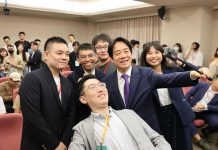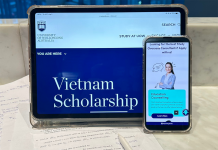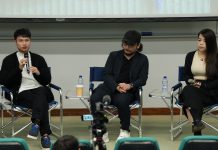Shek Wu Hui hosts a temporary market known as the Sheung Shui Open-air Bazaar, which is a market for unlicensed hawkers in Hong Kong. The space was donated by former Legislative Councillor and notable New Territories figure Cheung Yan-lung for hawker activities around 20 years ago.
The market, which is open between 6 a.m. and 10 a.m., is popular with local hawkers, as vendors do not need to have licences or pay rent to set up. Every morning, they queue up in front of the gate and wait for staff from the Food and Environmental Hygiene Department to open up.
One of the hawkers, who gives her name as Ms Lee, started to sell her home-grown vegetables at the market a few years ago. Every morning, she brings her produce over by bicycle.
Most of her customers are local residents, but some travel from other districts like Tsuen Wan or Tsing Yi, attracted by the distinctive fresh vegetables. Over time, some of the customers have become her friends.
The words “unlicenced hawkers’ market” might conjure up images of a crowded, dirty environment but the market is in fact clean and orderly. Singing can be heard at times and most of the hawkers are friends with each other. “Many of us live in Sheung Shui. We see each other every day so we help each other when needed,” Ms Lee says.
The spotlight on the parallel traders around Sheung Shui station may highlight one facet of a town that residents feel has changed beyond recognition. But in places like Shek Wu Hui, some of the old bonds remain.
Nothing, however, can really compare to the dramatic changes of the 1980s when the construction of the New Town and the arrival of the electrified railway redrew the landscape.
Even old-timers like Wong Chi-wah, himself once a newcomer, think it is unrealistic to reminisce about the old days of rural life. Instead, he hopes the government will address the tensions arising from increased cross-boundary economic activities and the social impact they bring.
Still, for some of the post-80s generation who grew up in Sheung Shui new town, the needs of the local community and respect for their way of life should not be sacrificed for greater integration with the mainland. “I hope the changes can be organic, which means letting [Sheung Shui] change itself over time,” says writer Leung Wai-sze, whose paean to her hometown struck such a chord with so many.






































